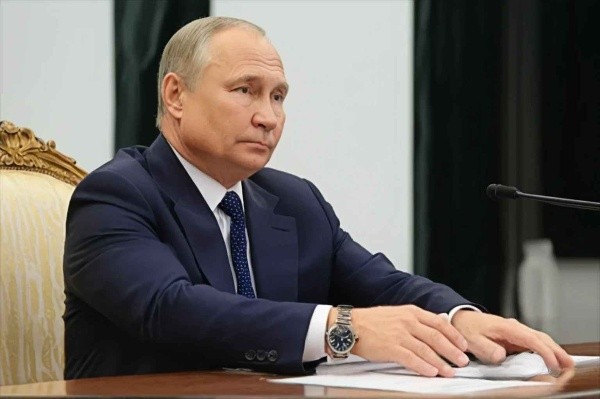Iran’s Plan to Strike Back Against the U.S.
Iran’s Military Preparations Following U.S. Attacks
Loading...

Comments appear to significantly lower the threshold for Russia to use nuclear weapons and come as Western allies consider allowing Ukraine to use weapons inside Russia.
Introduction
In a significant announcement, Russian President Vladimir Putin has outlined new rules governing the use of Russia's extensive nuclear arsenal. This development appears to lower the threshold for nuclear engagement, coinciding with discussions among Western allies about providing Ukraine with the capability to strike military targets within Russia.
Key Changes to Nuclear Doctrine
During a televised meeting of Russia’s Security Council, Putin revealed that the revised nuclear doctrine would classify an attack by a non-nuclear state, especially if supported by a nuclear power, as a "joint attack on the Russian Federation." This marks a notable shift in policy, as it suggests that Russia may respond with nuclear weapons to conventional attacks that it perceives as a "critical threat to our sovereignty." This vague language allows for broad interpretation, raising concerns about the potential for escalation in conflicts involving Russia.
Putin emphasized that he, as the primary decision-maker regarding Russia's nuclear arsenal, would have the final say on any nuclear response. The implications of this change are profound, particularly as it comes at a time when Ukraine has launched incursions into Russian territory, notably in the Kursk region, and as Western nations contemplate enhancing military support for Ukraine.
Context of the Announcement
Putin's remarks did not specifically mention Ukraine, but he indicated that the revisions were necessary due to a rapidly evolving global landscape that presents new threats to Russia. Despite facing challenges in Ukraine since the onset of the full-scale invasion two and a half years ago, Russia has made incremental gains and seeks to deter Western support for Kyiv.
The Russian president has previously hinted at the possibility of nuclear action, particularly after suspending participation in the New START treaty with the United States, which regulates the number of nuclear warheads each country can deploy. This treaty's suspension further complicates the nuclear landscape and raises tensions between Russia and the West.
Reactions from Ukraine and the West
In response to Putin's threats, Ukrainian President Volodymyr Zelenskyy has urged Western allies to dismiss Russia's nuclear posturing. His chief of staff, Andriy Yermak, characterized Putin's statements as attempts at intimidation, asserting that "Russia no longer has any instruments to intimidate the world apart from nuclear blackmail." This sentiment reflects a growing resolve among Ukraine's leadership to counter Russian threats without succumbing to fear.
Experts have expressed concern over the implications of Russia's revised nuclear doctrine. Samuel Charap, a senior political scientist at RAND, noted that it is troubling when a major nuclear power lowers the conditions for nuclear use in its policy statements. The Institute for the Study of War also commented that Putin's hyper-specific threats could be aimed at generating panic among Western policymakers during critical discussions about Ukraine's military capabilities.
The Broader Implications
Putin's announcement also extends Russia's nuclear umbrella to Belarus, a close ally that has allowed Russian troops to operate from its territory. This move further solidifies the military alliance between the two nations and raises the stakes in the ongoing conflict in Ukraine.
As the world's largest nuclear power, Russia, alongside the United States, controls a staggering 88 percent of the globe's nuclear warheads. The potential for miscalculation or escalation in this tense environment is a significant concern for global security.
Conclusion
Putin's revisions to Russia's nuclear doctrine signal a more aggressive stance regarding the use of nuclear weapons, particularly in response to conventional threats. As tensions continue to rise in Ukraine and the West deliberates on military support for Kyiv, the international community must remain vigilant about the implications of these developments for global stability and security.
Editor
Iran’s Military Preparations Following U.S. Attacks
Troops remain in five strategic locations, raising fears of renewed tensions and long-term occupation.
Opposition forces have taken control of the capital after a significant offensive. Here is how it unravelled.
